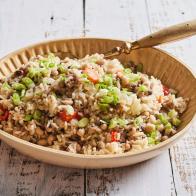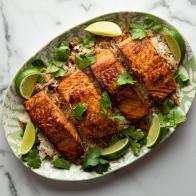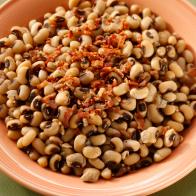9 Need-To-Know Indigenous Restaurants in the U.S.
Get to know some of the most inspiring restaurants across the nation, showcasing Native cuisine and local, historic flavor.

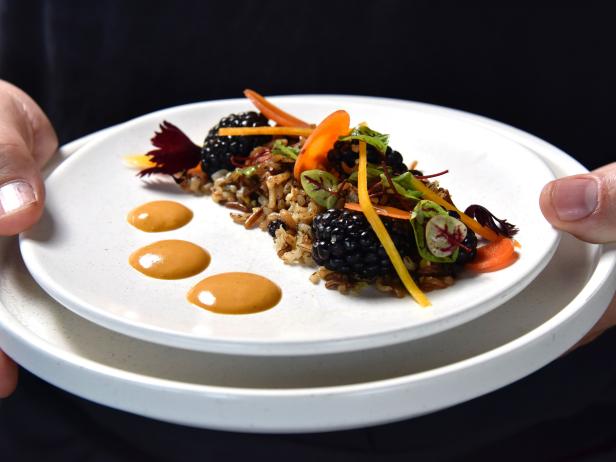
Courtesy of Owamni / Nancy Bundt
Indigenous eats have long been underrepresented across the U.S., but a fierce movement of talented chefs and activists paying tribute to the foods brought forth by their tribal ancestors is bringing change for the better. Lauded chefs like Don Guerra, Sean Sherman and Loretta Guzman are among the country’s top talent, and by way of cookbooks, bakeries and full-service restaurants, are helping the cuisine to become better understood.
As is often the case, the cuisine is not limited to one place or region in the country. Bountiful crops and livestock, naturally accessible to Native tribes from coast to coast, have influenced recipes for centuries. Today many indigenous restaurants have evolved to include ingredients found in the Americas post-colonization, while some remain devoted to cooking with only Native meats, grains and vegetables. Either way, they respectfully honor the communities which have long inhabited the area.
Choices of where and how to experience indigenous dining are becoming more abundant, with restaurants opening in big cities, within museums, and in resort hotels and casinos. At these restaurants, stories of various tribes are told through food and drink in a meaningful way. From concepts partnering with Native producers to those owned and operated by Native chefs, there is much to explore within the cuisine. Here are 9 need-to-know indigenous restaurants across the country.
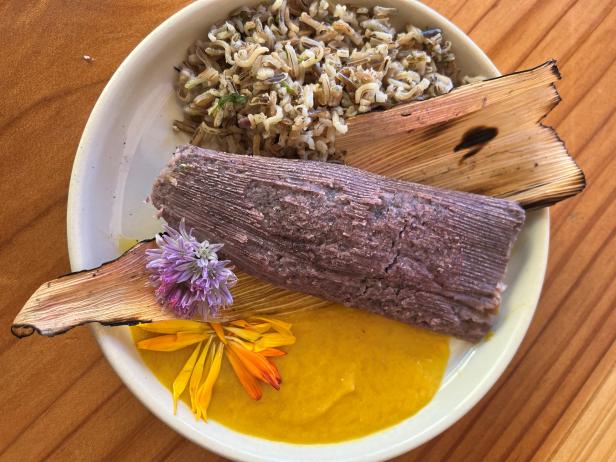
Courtesy of Wahpepah’s Kitchen
Oakland, CA
Led by chef Crystal Wahpepah, a member of the Kickapoo tribe in Oklahoma, Wahpepah’s Kitchen showcases indigenous cuisine in a modern and comfortable setting. Wahpepah honors Native and indigenous communities by utilizing ingredients from trusted sources. The bright, happy dining room prominently displays some of the ingredients for diners to see, alongside books and crafts from indigenous makers. Enticements from the menu include salsa made with hominy and served with blue corn Nixtamal tortilla chips, corn bread with a maple cream drizzle, braised rabbit tacos and bison meatballs.
Tucson, AZ
Don Guerra’s Barrio Bread, located in Tucson’s Broadway Village shopping center, is far more than a bakery — it is a symbol of the heritage grain movement. The star chef, awarded Outstanding Baker in 2022 by the James Beard Foundation, is a native of Phoenix who drew inspiration from his family’s Latino and Yaqui tribal background when he launched Barrio Bread out of his garage. Guerra’s use of ancient and heritage grains not only supports the local grain economy, but has also resulted in prized loaves not soon found elsewhere. The Einkorn specialty organic whole-grain bread is made with 100% Einkorn flour, while Barrio Bread’s signature heritage loaf is made with a blend of locally-grown heritage flours. Many loaves are branded by distinguishable stencils, making them a picture-perfect addition to the table.
Portland, OR
This coffee house owned by Loretta Guzman, a native of Portland and member of the Shoshone-Bannock tribes of Fort Hall, Idaho, puts a spotlight on local purveyors and Native roasters. Bakery cases reveal freshly prepared goods like biscuits, quiches, and scones made using Guzman’s own recipes, while the beverage menu showcases coffees from vendors like Spirit Mountain Coffee and Star Village Coffee. The bison, a symbol of resilience to the Shoshone-Bannock tribe, not only represents the strength and survival of Guzman's people, but also her own toughness as a cancer survivor.
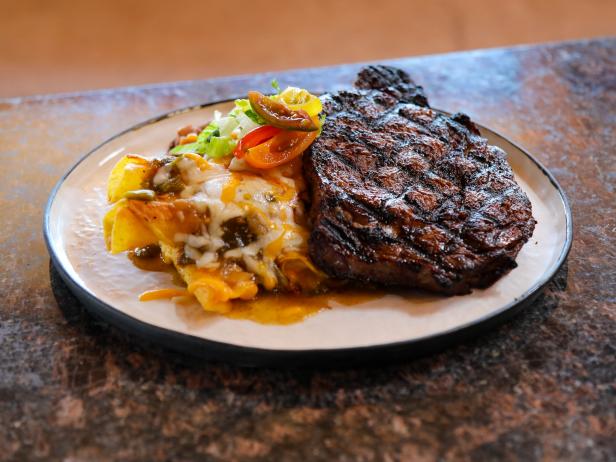
Courtesy of Indian Pueblo Kitchen
Indian Pueblo Cultural Center
Albuquerque, NM
This gem, honoring New Mexico’s 19 Pueblo tribes and their culinary heritage, makes visiting the Indian Pueblo Cultural Center twice as fun. Belly-filling dishes include a turkey melt on Pueblo oven bread and the Navajo taco with ground churro lamb, while blue corn stars in standouts like enchiladas, corn bread, onion rings, and griddle cakes. Breads and tortillas are made onsite and serve as top notch vessels for scooping up every last drop of posole and Pueblo beans. Beyond operating as a restaurant, Indian Pueblo Kitchen has put forth efforts to teach indigenous cooking and offer resources for future restaurant entrepreneurs.
Sheraton Grand at Wild Horse Pass
Phoenix, AZ
Located within the Sheraton Grand at Wild Horse Pass in Phoenix, Kai honors the rich heritage of its Native American community, drawing inspiration from the Pima and Maricoba tribes in both its food and aesthetics. Kai translates to “seed” in the Pima language, and at the restaurant, produce, beans and olive oil harvested from the land of the Gila River Indian Reservation, are incorporated into the food. The menu boasts a modern, yet approachable take on Native American cuisine, with dishes like grilled tenderloin of tribal buffalo, chilled cactus soup, and blue corn and sumac-crusted quail. Beyond the culturally rich dining experience, note thoughtful touches at every turn, as in menus decorated with original watercolor artwork by a local artist. With breathtaking views of the Sierra Estrella mountain range and as Arizona’s only AAA Five Diamond restaurant, Kai is an attractive destination for locals and tourists alike.
Seattle, WA
After launching Seattle’s first food truck slinging Native American eats, owners Mark McConnell and Cecilia Rikard, opened a cafe by the same name inside the Burke Museum on the University of Washington campus. McConnell’s mother grew up on the Blackfeet Reservation in Browning, Montana, and he spent his childhood eating traditional fry bread and tacos. The menu at Off the Rez is reflective of this, with mouthwatering choices like Indian tacos stuffed with slow-braised shredded bison presented on handmade fry bread and sweet fry bread varieties topped with jam, lemon curd, and Nutella. Guests may visit the cafe with or without entry to the museum, and the truck continues to operate around Seattle, making it convenient for curious diners to have a taste.

Courtesy of Owamni / Nancy Bundt
Minneapolis, MN
Since its buzzy opening in 2021, Owamni skyrocketed to star status after being awarded the James Beard award for Best New Restaurant. Through their company, The Sioux Chef, Sean Sherman, an Oglala Lakota chef from the Pine Ridge Indian Reservation in South Dakota, and wife Dana Thompson, a descendant of the Wahpeton-Sisseton and Mdewakanton Dakota tribes, have long served as indigenous food educators, even co-founding the North American Traditional Indigenous Food Systems (NATIFS) non-profit. At Owamni, located along the Mississippi River inside the Water Works Pavilion in Mill Ruins Park, guests are given the chance to explore a “decolonized dining experience." The food incorporates only ingredients which were available before European settlers arrived in North America. The menu is absent of dairy, wheat flour, cane sugar, beef, chicken and pork, yet reveals imaginative choices like duck sausage with roasted turnips, cedar-braised bison tacos and hand-harvested wild rice.
First Americans Museum
Oklahoma City, OK
As the name suggests, Thirty Nine pays tribute to Oklahoma’s 39 tribes by way of its modern menu using traditional ingredients which have been long prevalent in the region. Blue corn polenta fries are jazzed up with garlic sage aioli and fried rocket greens, the corn powder packs a punch of fiery flavor from fire-roasted green chilies, and the Thirty Nine burger packs bison and fried onions in between potato buns. Museum entry is not required to dine, though it surely adds to the experience.
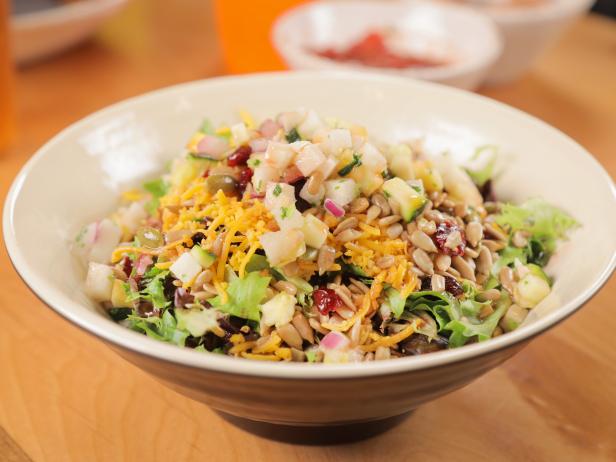
Citizen Pictures
Denver, CO
This fast-casual restaurant, boasting multiple locations in Denver, allows you to peruse ingredients behind glass while passing through the line, before customizing dishes like tacos built with fry bread and loaded posu bowls. Consider toppings like ground or braised bison meat, corn, hominy, grains and beans, and then dine-in or take your masterpiece to go. There are heartier choices too, as in the sweet and savory, berry-glazed bison ribs and green chili stew. The Native American-owned and operated restaurant puts an emphasis on partnering with local purveyors and indigenous producers, as in using wild rice from Red Lake Nation Foods and tepary beans and wheat berries from Ramona Farms.
